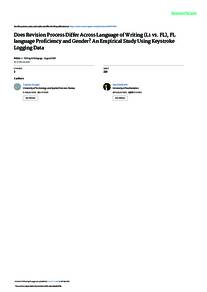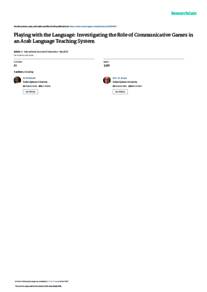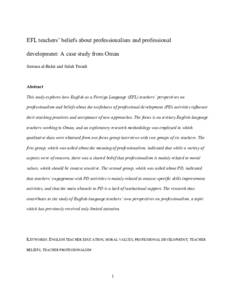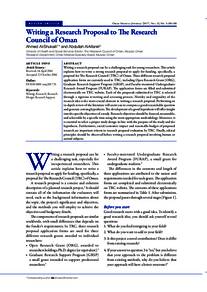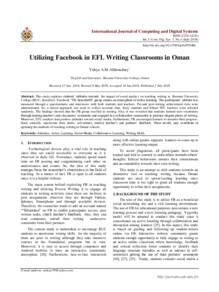Document
Does revision process differ across language of writing (L1 vs. fl), fl language proficiency and gender? : an empirical study using keystroke logging data.
Identifier
DOI: 10.1558/wap.38067
Source
Writing and Pedagogy. v. 12, 1, p. 73-109
Contributors
Galbraith, David., Author
Country
United Kingdom.
Publisher
Equinox Publishing Ltd.
Gregorian
2020-01-01
Language
English
English abstract
Drawing upon cognitive writing process theory and research, this study investigates the influence of language of writing, foreign language (FL) proficiency and gender on the revision processes of 77 undergraduate students studying at an English-medium college in Oman. Their first language (L1) was Arabic and their FL was English. The participants produced two argumentative authentic texts, one in L1 and one in FL. Their proficiency in English was assessed using the Oxford Placement Test (OPT). Participants’ revisions were recorded and analysed, according to the measures amount, location and type, via keystroke logging. The results showed that the vast majority of revisions in both languages were immediate, i.e. at the point of inscription, and focused on language rather than content. In addition, there was consistent evidence that participants made more revisions in the FL than they did in L1. For ‘total amount of revision’ and ‘immediate revisions’, there was a consistent interaction between gender and FL proficiency. The pattern of the interaction indicated two conflicting tendencies: (a) female participants appeared in general to be more motivated to make revisions in both languages than males, and (b) the less proficient they were in FL the more revisions they made. By contrast, the number of revisions made by the male participants did not depend on their FL proficiency. For ‘distant’, i.e. already written text, and ‘end’, i.e. after producing the first draft, revisions the amount of revision depended solely on the language of writing and gender. Furthermore, the results revealed that when writing in the FL, students with greater FL proficiency attended to content revision more than language revision. Findings are discussed in light of process-oriented writing research and implications for writing research and teaching are suggested.
ISSN
1756-5839
Category
Journal articles

